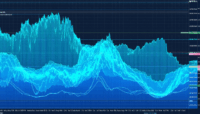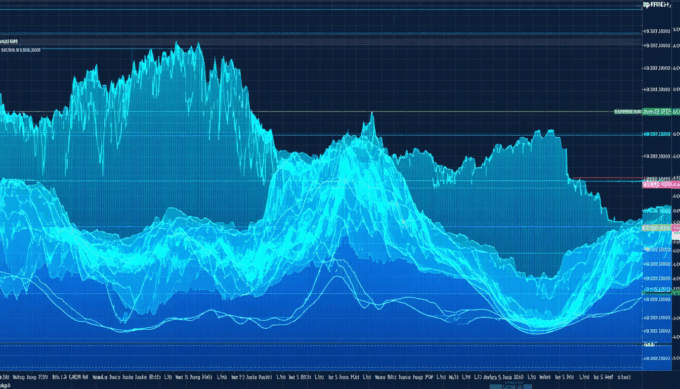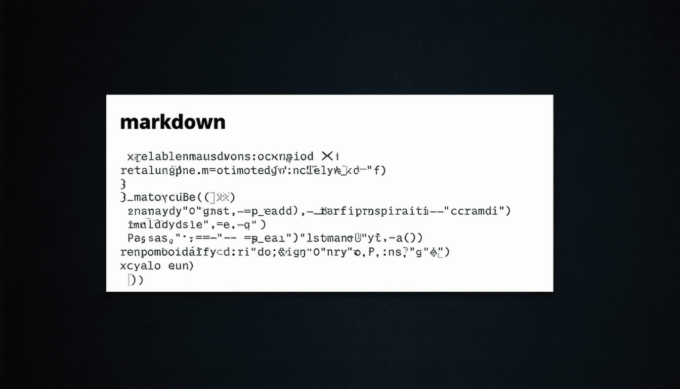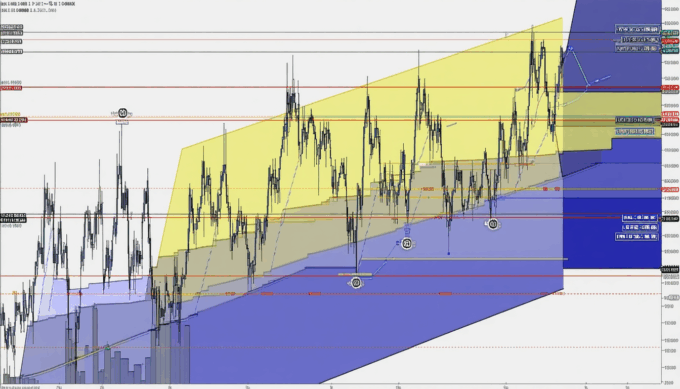Curious investors and crypto newcomers alike face an ongoing dilemma: what is the true Pi Network price on Binance, and how can you track its live PI to USDT value? The stakes are high—timely, accurate pricing information can make the difference between a profitable decision and a missed opportunity. This article delivers a thorough analysis of the Pi Network’s price dynamics as seen on Binance, demystifies the live PI to USDT chart, and equips you with actionable insights for understanding and tracking this unique digital asset.
Understanding Pi Network Price Binance: Definition and Context
The term “Pi Network price Binance” refers to the potential or observed trading value of the Pi token (PI) relative to stablecoins like Tether (USDT) as listed by the Binance exchange. While Pi Network has garnered enormous attention for its mobile-first mining approach, its token’s journey to true liquidity and price discovery raises questions about how the PI price is determined—especially across exchanges.
Why It Matters for Crypto Traders and Investors
For market participants, knowing the Pi Network price on Binance opens access to market tracking, portfolio management, and informed trading decisions. The live price directly influences when—and whether—to buy, sell, or hold PI. Given that conversion to USDT provides a reliable USD proxy, this data also empowers you to compare Pi’s performance against the broader crypto market, gauge sentiment, and react swiftly to value shifts.
How to Track and Analyze Pi Network Price on Binance
Pillar 1: Identify Official Listings and Trading Pairs
First, ensure PI is truly listed on Binance. Official listings guarantee price transparency and liquidity. Binance periodically updates its markets; search the PI/USDT trading pair in Binance’s spot market section. If PI is not officially supported, any cited price may stem from derivative, IOU, or off-chain trading pairs—which carry unique risks.
Decision point: Trust only data from Binance’s official “Spot” market, not from sketchy “futures” or unbacked tokens.
Pillar 2: Use the Live PI to USDT Chart
Once confirmed, navigate to Binance’s charting interface. Select the PI/USDT trading pair and examine real-time price movements. Use time intervals (1m, 5m, 1h, 1d) to spot trends. The chart visualizes order flow, price volatility, and trading volume, which are critical for technical analysis and timely trade entries.
How-to: Focus on the candlestick patterns and volume bars for short-term momentum. Use support and resistance levels to inform decisions.
Pillar 3: Monitor Depth, Liquidity, and External Announcements
Go beyond raw price. Check the market depth chart for large buy/sell walls; thin liquidity may amplify price swings. Simultaneously, monitor Binance and Pi Network official channels for news—such as protocol updates or listing announcements—that could impact price or token tradeability.
Criteria: Prioritize trades when liquidity and volume are high to minimize slippage, and always confirm price updates with platform announcements.
Tools, Checks, and Key Metrics
- TradingView (integrated in Binance): For interactive price charts, overlays, and technical indicators.
- Order Book Analysis: Gauge supply and demand, spot sudden moves.
- Portfolio Performance Monitors: Assess impact of PI price shifts on your holdings.
- Official Announcements Feed: Verify that PI movements correspond to real protocol or exchange news.
Data & Proof: The Numbers Behind Pi Network Price
Key Statistics
- In 2023, periodic rumors around PI’s “listing” led to trading surges on several centralized exchanges, but Binance clarified it had not yet officially listed PI (Binance Announcements, 2023).
- According to CoinMarketCap (2023), when unbacked PI tokens appeared briefly, their quoted price ranged from $25 to over $100, vastly outpacing the expected mainnet value.
What These Numbers Mean for You
The data underscores a key lesson for traders: without official listing and mainnet integration, any “Pi Network price Binance” is speculative—sometimes drastically misaligned with true value. Reacting to unofficial listings or rumor-driven spikes invites significant risk. Waiting for confirmed liquidity from the real mainnet launch offers a safer, more transparent path for both holders and prospective buyers.
Practical Examples: Tracking and Using PI Price on Binance
Example A: A Cautious Approach to PI/USDT Trading
A trader monitors official Binance spot listings and verifies that PI/USDT is newly supported. By examining the live price chart, they enter a buy order during high volume, set exit targets based on support/resistance, and profitably execute trades as actual liquidity builds—achieving precise entries and exits based on verifiable market data.
Example B: The Perils of Relying on Unofficial Prices
Conversely, another user reacts to rumors and purchases PI tokens from an obscure IOU market. The tokens cannot be transferred or withdrawn to Binance’s spot wallet. As the mainnet launches, their IOU value collapses, leaving the trader unable to realize gains or even reclaim their investment—highlighting the hazards of acting on unofficial or non-backed prices.
Common Mistakes and How to Avoid Them
- Mistaking IOUs for real tokens: Only trade verified PI tokens on reputable exchanges.
- Overreacting to rumors: Always confirm significant news with official sources before trading.
- Ignoring liquidity and spread: Thin markets can result in substantial slippage, eroding profits.
- Holding onto unbacked tokens: If PI is not transferable or withdrawable, its value is likely unsubstantiated.
Implementation Checklist for Tracking PI Price on Binance
- Search for official PI token listings under Binance Spot markets.
- Only track PI/USDT or other verified pairs—avoid unbacked “pre-listing” tokens.
- Utilize Binance’s real-time charting and TradingView overlays.
- Monitor order book and market depth for solid liquidity before entering trades.
- Follow official announcements from Binance and Pi Network for updates.
- Review historical price data and set limit orders to manage risk.
Conclusion: Key Takeaways for Tracking Pi Network Price on Binance
Understanding the Pi Network price on Binance hinges on distinguishing between official, liquid trading pairs and speculative, unbacked listings. Reliable PI to USDT price tracking depends on using verifiable Binance market data, cross-referencing with official announcements, and applying sound trading principles. By following these steps and avoiding common pitfalls, traders and investors can position themselves for safer, more informed decisions as Pi Network’s token continues its journey toward broader exchange integration. Remain vigilant—vet every price source—and act with confidence as transparency and liquidity increase.











Leave a comment